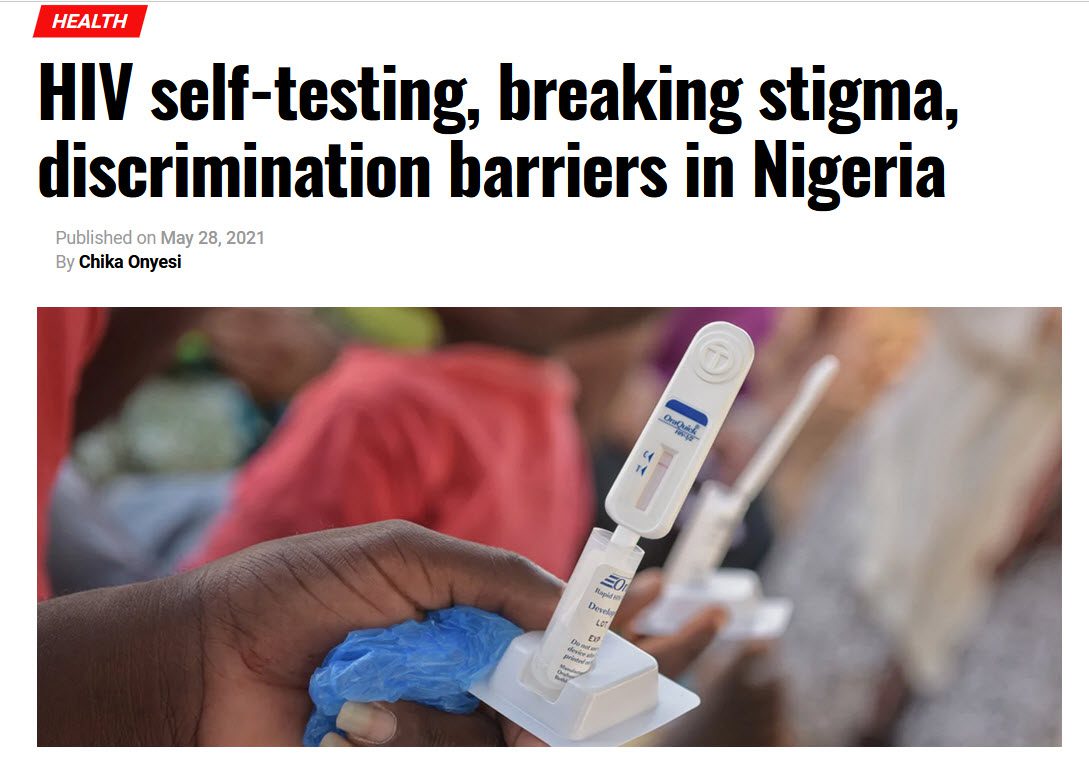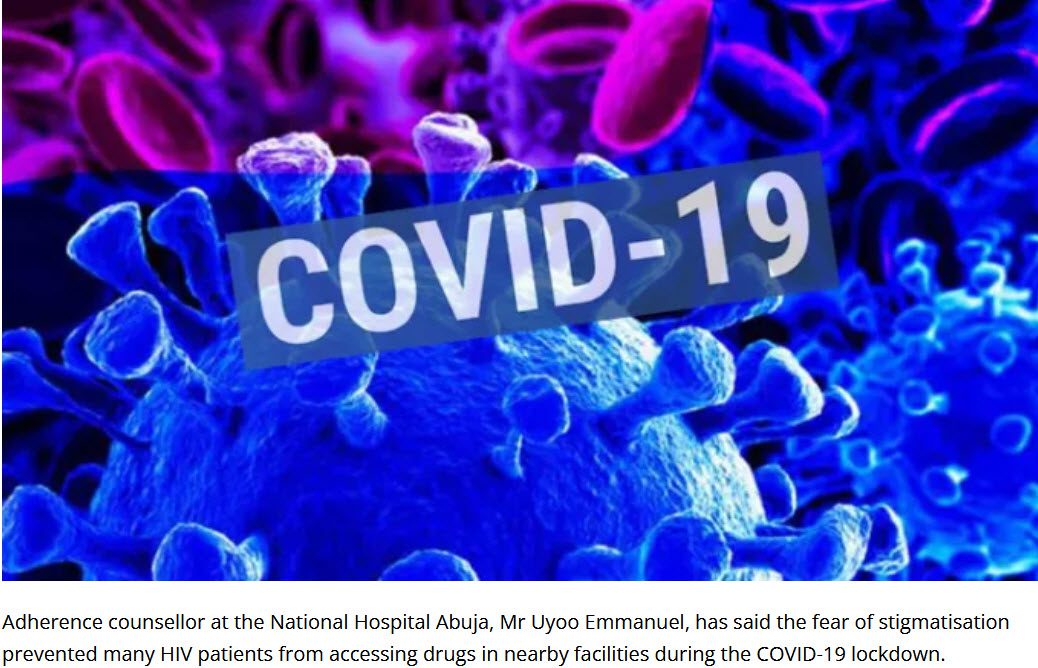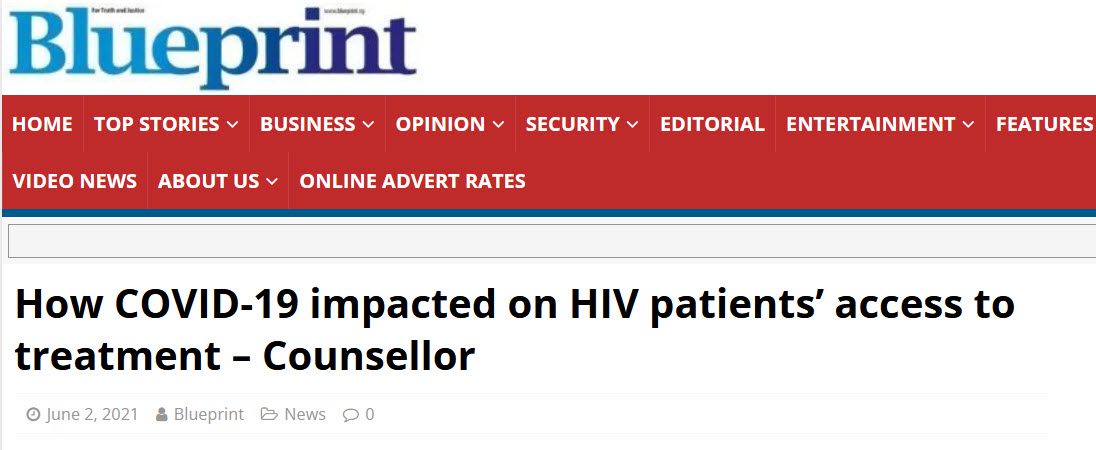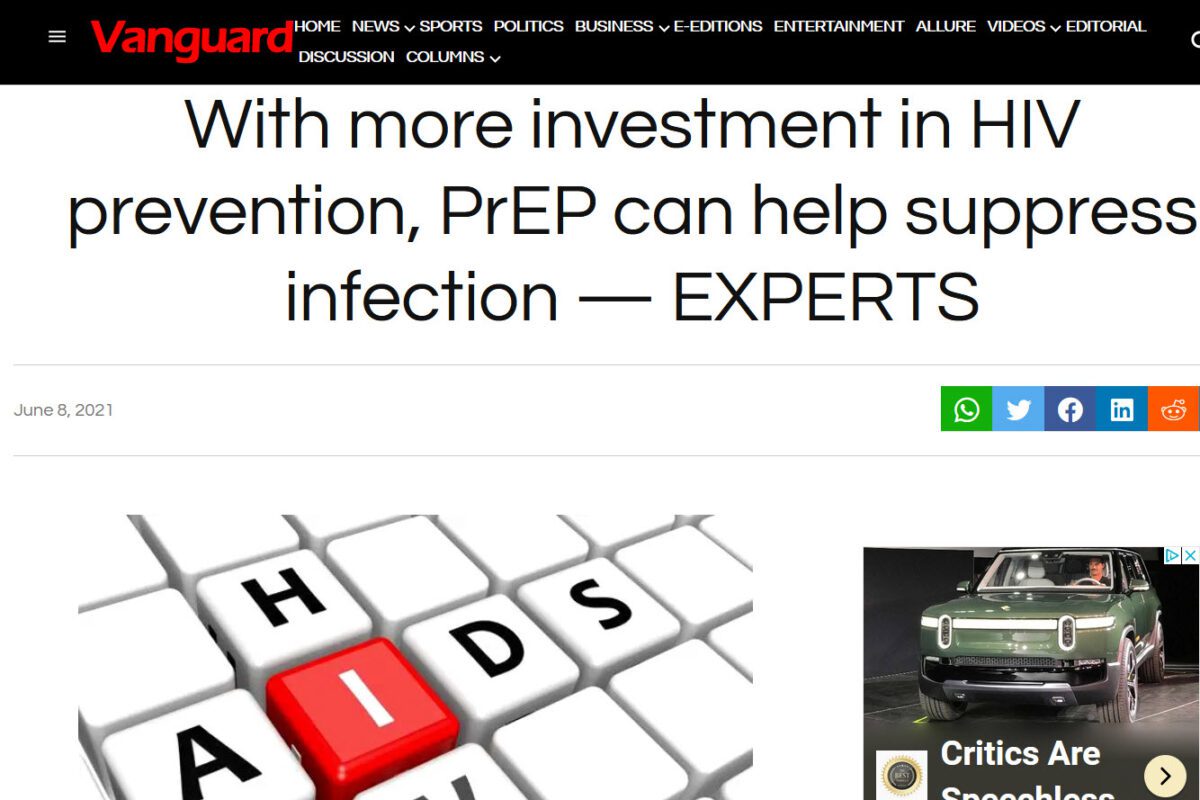by Chaacha Mwita, Internews Pandemic Media Mentor
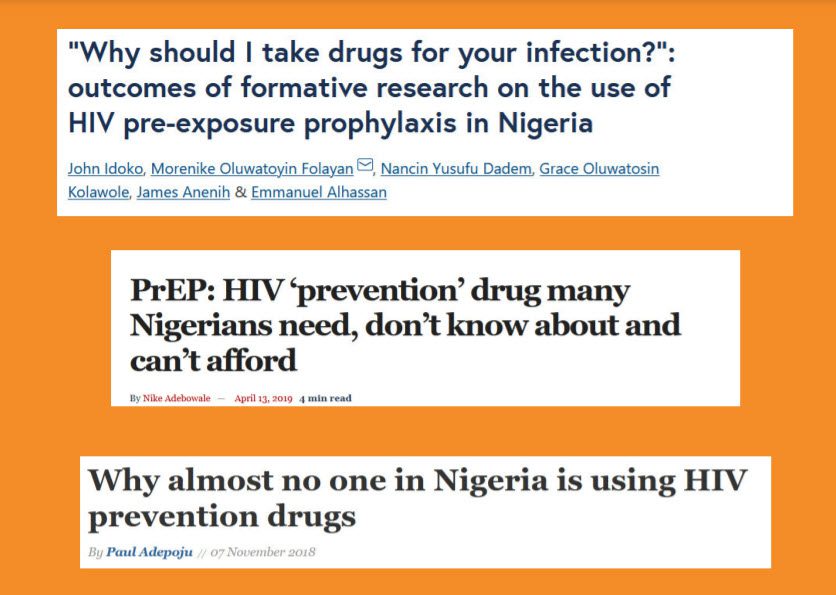
These are just three of the headlines about PrEP in Nigeria which the Internews training team identified in a snapshot analysis of media coverage of the topic. PrEP is short for Pre-Exposure Prophylaxis, the use of a daily anti-retroviral pill to prevent HIV infection. The headlines span the period between 2015 to 2019, before COVID-19 broke out and dominated global health discourse. If anything, the story they tell is a regrettable one as, given what has been known about PrEP for years, no one should have to risk HIV infection for lack of access and information.
PrEP is not yet available to the general public in Nigeria, but is available to those “at substantial risk” of HIV infection. The problem is, many of those deemed “at high risk” are not aware of it or do not know how to access PrEP.
A study – the one which gave rise to the headline “Why should I take drugs for your HIV infection” – published in BMC Public Health in 2015, explored public perceptions about the use and access to PrEP in Nigeria. It identified electronic and print media as important means for public education to prevent stigma and create awareness about PrEP. This is also Internews’ experience:
Accurate and compelling stories about HIV services generate interest, can drive demand and shape public opinion.
“Unfortunately, the issue of HIV appears to be neglected by media houses nowadays. In fact, if you check the Nigerian media, be it TV, radio, print or online newspapers, you may not read a single story on HIV in a whole month,” says Anselm Okollo, of Journalism.com, a media initiative in Abuja. “Does it mean that HIV no longer exists in Nigeria? Of course, the answer is ‘no’ because the virus is still very much with us. So, reviving interest in the existence of HIV in Nigeria should be the focus of journalists.”
But the stories do have to be accurate, and this is where media training comes in. A recent Internews media training project addressed the information gap and inspired the publication of new stories on PrEP in the Nigerian media. This was made possible with the support of the Mercury Phoenix Trust, UK.
Aptly named “PrEP: What Nigerians need to know,” the project worked with 20 Nigerian journalists over a three-month period to increase the quantity and improve the quality of HIV reporting by mainstream media in Abuja and Lagos.
Topics covered in the training included self-testing, PrEP, and the impact of COVID-19 on access to HIV services. The group also networked with civil society health advocates to seize local momentum to the global push for better HIV services. Even though HIV prevalence among adults is not as high as in countries in Southern and East Africa, Nigeria has the second largest HIV epidemic in the world, due to its sheer size.
Working with Journalism.Com Ltd, the goal was to inform the public, drive the acceleration of roll-out and support global efforts to minimize preventable HIV infections. In addition to the training, field trips and stories that have been produced, there has been a renewed appreciation of the need for health journalism training in Nigeria. Participants were excited that Internews was once again hosting HIV journalism training in Nigeria following the success of the Local Voices HIV journalism program more than ten years ago. After just a few weeks of this training focus, HIV headlines told a better and more nuanced story.
Below are some better headline examples!
